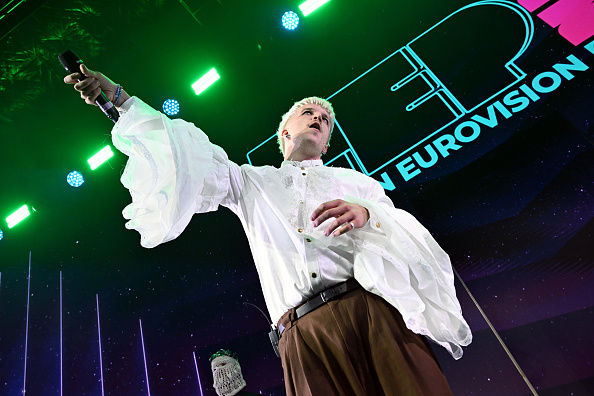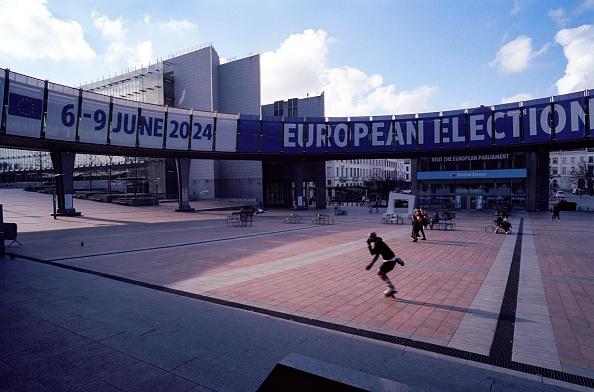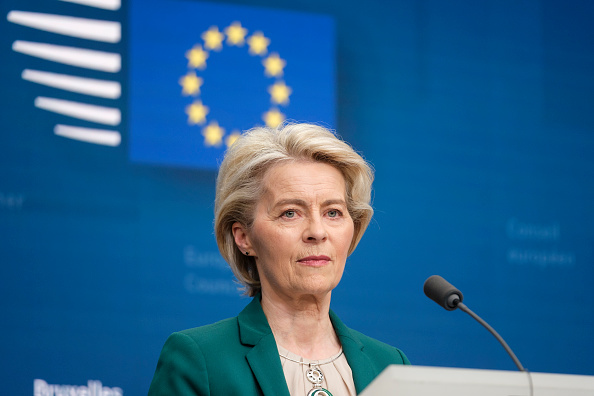Croatia’s Homeland party has emerged as kingmaker following the country’s snap elections.
Receiving 14 seats in the wake of the April 17 vote, the Eurosceptic party is now pivotal in humbled Prime Minister Andrej Plenković’s path to a parliamentary majority.
In true power-broker fashion, Homeland’s leader Ivan Penava has said that he will equally entertain offers from both Plenković and his defeated rival, President Zoran Milanović.
“The key is that we will talk to everyone,” Penava said.
Plenković, by contrast, is down to 61 seats from 66, his decision to call the early election having misfired. He now needs 76 for a majority.
Teneo analyst Andrius Tursa said Homeland “appears the only plausible coalition partner at this point”.
Tursa added that negotiations between Plenković and Penava might not be easy, though, as the latter “will likely try to exploit its kingmaker role to extract maximum concessions”.
Homeland, at the European Union level, currently seeks to join the European Parliament’s Identity and Democracy Group (ID). It arranged a meeting with the ID in Zagreb in October last year.
Founded by folk-singer Miroslav Škoro, who has since resigned, the Croatian party has recently gone through a process of professionalization, with one source saying that it has now hired public relations consultants.
The party is unapologetically Eurosceptic, with Penava having previously said that, 33 years after gaining independence from Yugoslavia, the EU is now the biggest threat to Croatian sovereignty.
“It’s not Belgrade anymore, it’s Brussels,” he previously told journalists.
It is not certain that Homeland will end up being within the halls of government, with there being some speculation that Plenković’s Croatian Democratic Union (HDZ) could try to go it alone.
To do that, the premiere would “need to poach several individual lawmakers from other parties, which it had managed to do in the past”, Tursa said.
An advantage of this route is that an HDZ-led government without major coalition partners “would likely be more stable and could last the entire term, as evidenced during the past four years”, he added.
The 11 seats reserved for national minorities could represent an opportunity for Plenković to try to make up the numbers.
Another possible coalition partner is the centre-right MOST party, with its 11 seats, though this appears likely to be a difficult sell.
While it has previously been an HDZ coalition partner, the party’s leader, Bozo Petrov, has recently lashed out at Plenković’s group, saying it “should be sent into opposition”.
Thursday’s result was the worst performance for the governing HDZ since 2011, despite a record turnout of 62.3 per cent.
It was a slightly better outing for the opposition Social Democratic Party (SDP) with 42 seats, its 25.4 per cent of the vote being a minor improvement on its 24.9 per cent in 2020.
“The HDZ didn’t win because it’s good, but because the opposition is for the most part dreadful,” wrote Croatia’s centre-left Index newspaper.
“They swapped working on the ground for pulling faces on social media and chasing hearts on Instagram and likes on Facebook.
“Instead of drafting alternative legislative proposals they made comments on X … instead of creating a shadow government with experts they deployed mediocre guys telling bad jokes,” it added.
While it is still possible for the SDP to form a government after its fourth consecutive second place election finish, it will be harder to do the maths.
With a more substantial 24 seats to make up, its task is only made more difficult by the “green-left” Mozemo party saying that it will not be part of a coalition that includes Homeland MPs.
According to Croatia’s Constitution, the president gives the first chance to form a government to the party that is able to secure backing from an absolute majority of MPs.
This, though, throws up some intrigue as President Milanović also led the SDP in the election — defying a constitutional court ruling saying he could not.
For a President who has shown his willingness to defy the rules, if the SDP is in striking distance of assembling a coalition, it may get a little help from him, too.





